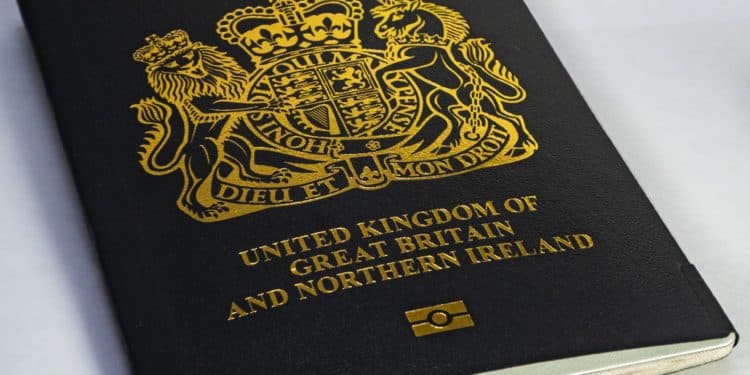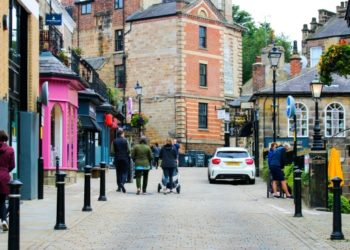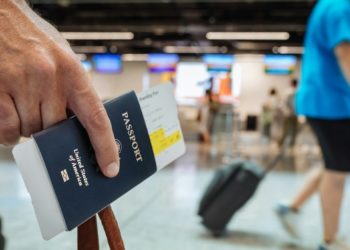Obtaining British citizenship is not an easy feat. You would need to meet an extensive set of requirements that would vary depending on your specific circumstance. However, once you attain British citizen status, you earn entitlement to a broad number of rights and benefits, including the right to a British passport (considered one of the most powerful in the world).
How Do I Acquire British Citizenship?
There are four main ways by which you can become a British citizen:
– By birth or descent
– By naturalisation
British Citizenship by Birth or Descent
Only those who were born in the UK or have at least one British parent/grandparent can potentially become British citizens under this modality.
Children born in the UK are not automatically recognised as British nationals but only insofar as they fulfil certain conditions. First, children born in the UK can get British citizenship automatically if both their parents are settled in the country. If the parents are non-British nationals, they would have to hold Indefinite Leave to Remain or Settled status before the children can be registered for citizenship. The right to British citizenship also hinges upon the rules applicable at the time of birth.
Children born outside the UK to British citizens can be entitled to British nationality by descent. They could register for British nationality if both parents consent to the application and lived in the UK for three or more years before the submission.
British Citizenship by Naturalisation
British citizenship by naturalisation is for individuals who have no initial connection to the UK – because they were not born in Great Britain or from British nationals – but who developed a relationship with the country that’s close enough to warrant their treatment as if they were natives.
Examples of routes that can lead to British citizenship are:
– Marriage
– 5-year route
– “Stateless” status
In all of these cases (save for a few exceptions) the candidates must prove that they were legally residing in the UK for a specified amount of time and that they have B1 level English (either by taking an accredited exam, earning a degree taught in English, or being from a majorly English-speaking country).
They should also pass the “Life in the UK” test which evaluates their knowledge of British history, culture, and traditions. People under 18 or over 65 are exempt from taking this test.
Let’s now go over each situation shortly:
British Citizenship By Marriage
You may be capable of getting British citizenship via marriage if you were married or in a civil partnership with a British national or a UK-settled person.
You must be at least 18 years old. Likewise, you ought to be able to show that:
– You are of “good character” and have not broken any UK laws.
– You lived in the UK for at least three years.
– You were granted Indefinite Leave to Remain (ILR) or Settled status
British Citizenship. 5-Year Rule
The five-year rule applies to individuals who were in the UK under an eligible visa for five years before attaining Indefinite Leave to Remain status. As a general rule, you may have to endure a 12-month waiting period after getting your Indefinite Leave to Remain if you wish to apply for UK citizenship by naturalisation, though people who came from a Spouse Visa are not bound to wait before registering their citizenship request.
The eligible visas are essentially reduced to some specific programmes related to work, business, or family ties. You’re not permitted to apply for Indefinite Leave to Remain under a Student Visa, let alone apply for UK citizenship.
Examples of visas that enable you to request Indefinite Leave to Remain (and then citizenship) include the Skilled Worker Visa, Global Talent Visa, Innovator Visa, Spouse Visa, Unmarried Partner Visa, etc.
In some cases, you can abbreviate the period by two or three years depending on the type of visa you held. For example, an Innovator Visa will permit you to file an Indefinite Leave to Remain petition after two or three years.
Citizenship for Individuals Considered “Stateless”
“Stateless” status means that you are not recognised as a national of any country, in which case you could potentially receive British citizenship by naturalisation. Nevertheless, the UK Home Office will demand that you at least provide information about your country of origin, as this will affect your eligibility and the process that must be followed.
What Documents Must I Provide to Register for British Citizenship?
Before submitting your petition, you should gather all the pertinent documentation that demonstrates that you meet the criteria for approval.
The documents you must prepare to submit to the UK Home Office are the following:
– Identity and permanent residence proof (passport, birth certificate, etc.)
– Document that shows that you hold Indefinite Leave to Remain or EU Settled status. It can be your residence card or Biometric Residence Permit (BRP)
– Evidence showing your previous immigration status and the legal right to stay in the UK, including the visa you were under
– Proof of knowledge of English
– The certificate showing you passed the “Life in the UK” exam with a 75% score
– Evidence of lawful residence (criminal records showing that you have no pending criminal investigations or convictions)
– Details of all travels made outside the UK, showing that you have not been absent for more than 450 years in a five-year period.
– Letter confirming your employment, educational establishment, or bank statements, depending on the treaty right you have exercised during the last three or five years.
You can always visit the GOV.UK website for more information on the prerequisites to fil a British citizenship application. You can also find the UK Home Office contact number here.
Fees and Processing Times
As an adult, you’d have to pay £1330 for naturalisation or £1206 for registration, plus a ceremony fee of £80. For children under 18, you must pay £1012 and no ceremony fee unless the child turns 18 during the process.
You’d usually get a response within six months. If the application is approved, you can arrange your citizenship ceremony, in which you will be given your certificate. This certificate will permit you to obtain your British passport afterwards.












































































